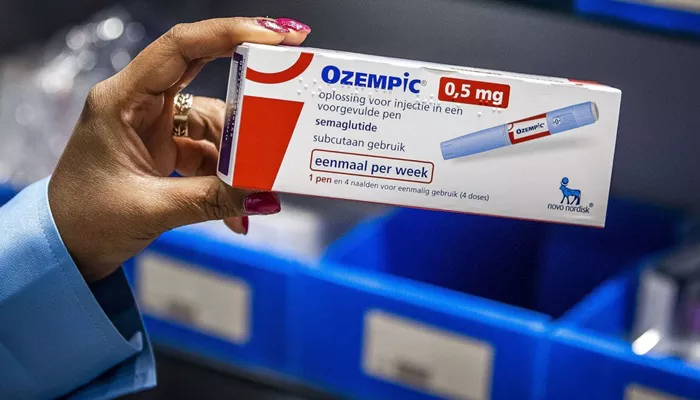Novo Nordisk’s diabetes and weight loss drugs, Ozempic and Wegovy, are no longer officially in shortage in the U.S., according to the U.S. Food and Drug Administration (FDA). This change means that compounding pharmacies and outsourcing facilities that had been legally preparing their own versions of these drugs can no longer do so. However, groups representing these suppliers have expressed concerns, arguing that drug supplies are still limited.
The demand for these glucagon-like peptide 1 (GLP-1) hormone-mimicking drugs soared after Wegovy was approved for weight loss. This overwhelming demand strained Novo Nordisk’s ability to manufacture enough injector pens. As a result, the FDA added both Wegovy and Ozempic to its drug shortage list in 2022, allowing compounding pharmacies to produce their own versions to meet the demand. Erin Fox, a pharmacist and adjunct professor at the University of Utah, emphasized that compounding pharmacists played a crucial role during the shortage.
The FDA has now confirmed that Novo Nordisk has built up sufficient reserves of finished and semi-finished products to meet or exceed projected demand. However, the FDA acknowledged that some patients may still face challenges in filling prescriptions due to supply chain issues between Novo Nordisk and its customers. The agency has allowed 90 days for outsourcing facilities and 60 days for compounding pharmacies to cease distributing their semaglutide products.
This phase-out has been welcomed by the Alliance for Pharmacy Compounding. The group had criticized the lack of notice when the FDA previously ended official shortages of Eli Lilly’s GLP-1 drugs, Mounjaro and Zepbound. Tenille Davis, chief advocacy officer at the Alliance, pointed out that while commercial versions of tirzepatide were still in short supply when the FDA removed them from the shortage list, the issue was primarily with the finished drugs, not the active pharmaceutical ingredient (API). Davis noted that compounding pharmacies had used the semaglutide API to create vials for syringe injection, which are easier to produce than auto-injector pens.
Compounding pharmacies are prohibited from making claims about the effectiveness of their treatments, a right held exclusively by the drug manufacturers. Both Novo and Lilly have taken legal action against entities making unauthorized marketing claims, and now that the official shortage has ended, they may pursue further legal actions to protect their patents.
Fox explained that the situation with the GLP-1 drugs was unusual. It’s rare for a high-demand branded product to experience a shortage, especially when the drugs in question are not generic. Fox expects that both Lilly and Novo will make every effort to avoid future shortages.
The profitability of GLP-1 drugs presents a major incentive for Novo and Lilly to meet demand. In February 2024, Novo Nordisk’s parent company, Novo Holdings, announced a $16.5 billion deal to acquire contract manufacturer Catalent. This acquisition will increase Novo Nordisk’s manufacturing capacity for semaglutide injectables. Both companies have pledged significant investments in expanding their manufacturing capabilities worldwide.
As compounding pharmacies return to producing semaglutide products tailored for specific patient needs, some patients may have to switch to the branded drugs. This change could lead to higher costs for patients, Fox said, noting that affordability might be a bigger issue than product availability.
The U.S. Outsourcing Facilities Association (OFA), which represents compounders producing larger quantities of compounded medicines, has filed a lawsuit against the FDA for what it calls a “reckless and arbitrary” decision to declare the shortage of semaglutide over. The OFA had previously filed an appeal after being denied an injunction to prevent the FDA from removing tirzepatide from the shortage list.
OFA chairman Lee Rosebush criticized the FDA’s decision to remove semaglutide from the shortage list without proper notice. He stated that the decision would have significant consequences for patients, physicians, and outsourcing facilities that had made major investments to address product shortages and delays.
Davis also raised concerns about the rise in counterfeit Ozempic and illegal online sales of research-grade peptides falsely labeled as the drug. She warned that these illegal activities should not be confused with legitimate compounding, stressing that millions of patients rely on compounded medications for their health needs.


